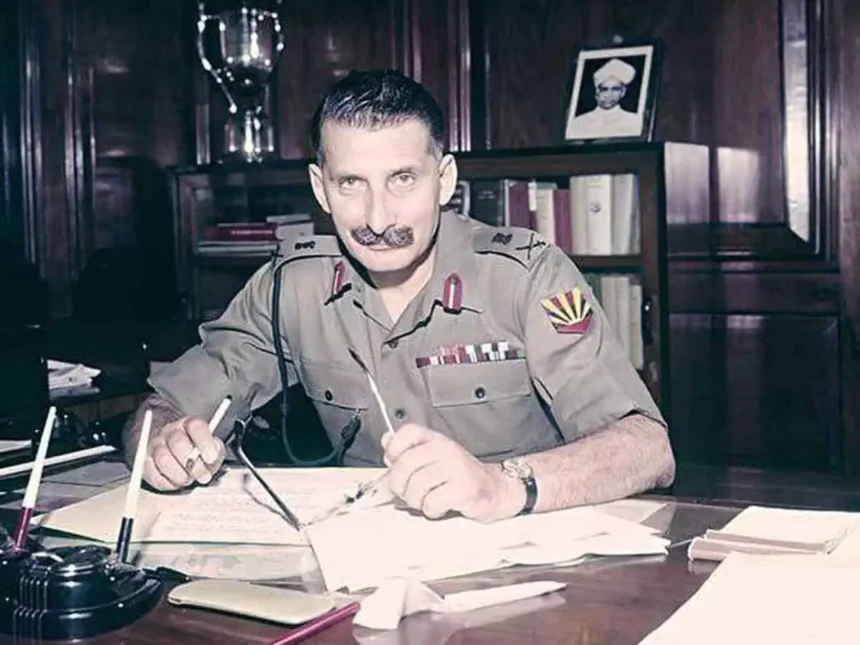Sam Manekshaw was one of the most celebrated and respected military leaders in the history of independent India. He was the Chief of the Army Staff of the Indian Army during the Indo-Pakistani War of 1971, and the first Indian Army officer to be promoted to the rank of field marshal. He is widely regarded as the architect of India’s decisive victory over Pakistan, which led to the creation of Bangladesh. He is also remembered for his courage, charisma, and wit, which earned him the admiration of his troops and the nation.
Former Chief of Army Staff of the Indian Army: Sam Manekshaw
Sam Manekshaw was born on 3 April 1914 in Amritsar, Punjab, to Hormusji Manekshaw, a Parsi doctor, and Heerabai, a homemaker. He was the fifth of six children, and had a happy and comfortable childhood. He attended Sherwood College, Nainital, where he excelled in academics and sports. He then returned to Amritsar to study at the Hindu Sabha College. In 1932, he joined the Indian Military Academy, Dehradun, as part of its first batch of cadets. He did this against the wishes of his father, who wanted him to become a doctor. He was commissioned into the 4th Battalion, 12th Frontier Force Regiment, in 1934.
Also read : Citizen Have No Fundamental Right To Know Of Source Of Electoral Bond: AG To SC
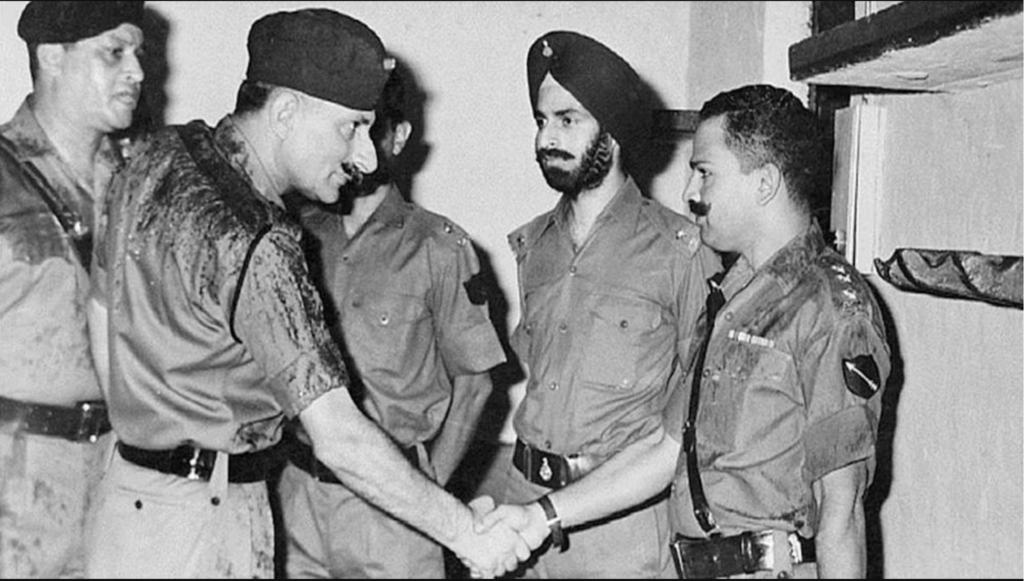
Sam Manekshaw
Manekshaw’s military career spanned four decades and five wars, beginning with service in World War II. He saw action in Burma, where he was wounded and awarded the Military Cross for gallantry. He also served in the Middle East and Europe. After the partition of India in 1947, he was reassigned to the 8th Gorkha Rifles. He played a key role in the planning and execution of the operations during the 1947 Indo-Pakistani War and the Hyderabad crisis. He rose through the ranks and became a brigadier in 1952. He then served as the director of military training at the Army Headquarters, the commandant of the Defence Services Staff College, Wellington, the general officer commanding of the 26th Infantry Division, and the commandant of the Infantry School.
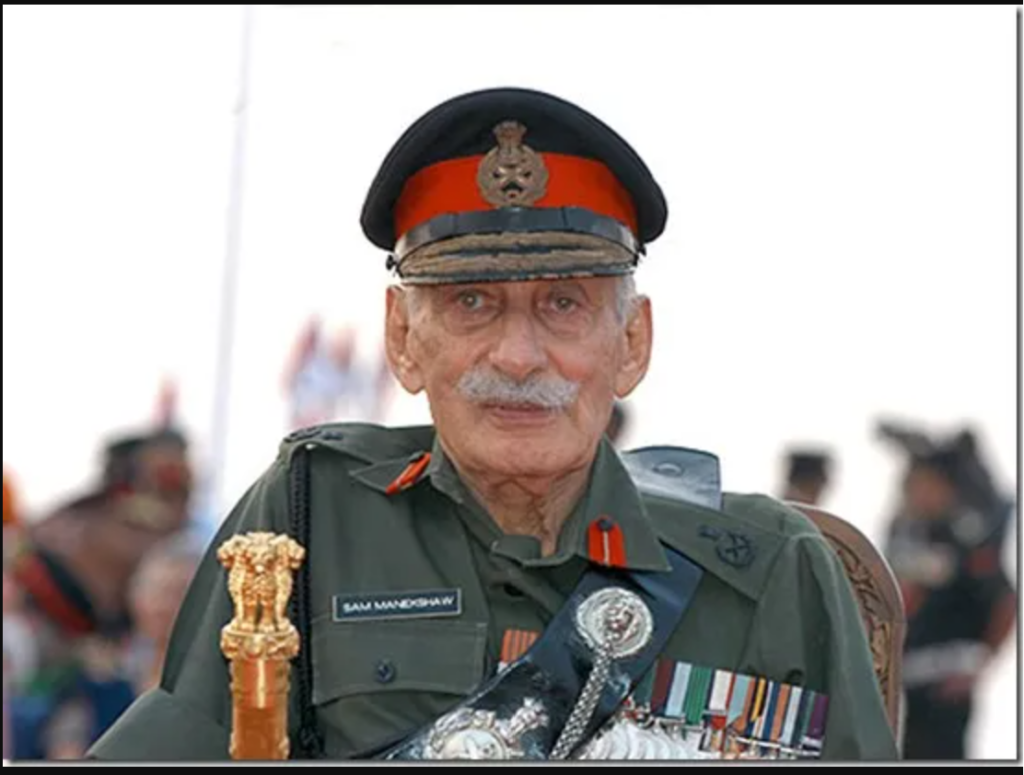
Sam Manekshaw
In 1963, Sam Manekshaw was promoted to the rank of lieutenant general and took over the Western Command. He was instrumental in containing the Chinese aggression in the Ladakh sector during the Sino-Indian War of 1962. He also successfully defended the western border against Pakistan during the Indo-Pakistani War of 1965. In 1964, he was transferred to the Eastern Command, where he prepared the Indian Army for a possible war with Pakistan over the issue of East Pakistan (now Bangladesh). He faced a lot of challenges and resistance from the political leadership, the bureaucracy, and even some of his fellow officers. He was accused of insubordination, corruption, and conspiracy, and faced a court of inquiry. However, he was cleared of all charges and vindicated by his performance in the war.
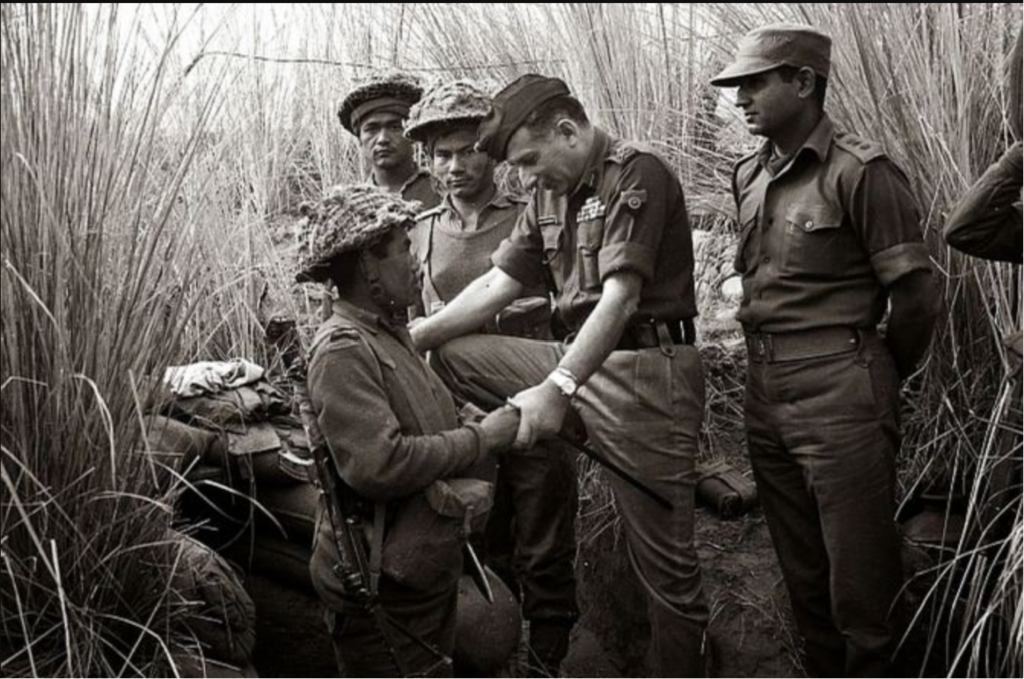
Sam Manekshaw
In 1969,Sam Manekshaw became the Chief of the Army Staff, and the next year, he was awarded the Padma Vibhushan, the second-highest civilian honour in India. He was also conferred the honorary rank of general by the Nepalese Army. In 1971, he led the Indian Army in the Indo-Pakistani War of 1971, which was triggered by the Pakistani crackdown on the Bengali population in East Pakistan. Manekshaw displayed remarkable strategic vision, operational acumen, and diplomatic skill in conducting the war. He mobilized and trained the Indian forces, coordinated with the Mukti Bahini (the Bengali guerrilla fighters), secured international support, and resisted political pressure to launch a premature attack. He also maintained a high morale and a sense of humour among his troops and the public. He famously told Prime Minister Indira Gandhi that the Indian Army was not ready for war in April 1971, and asked for a few months’ time to prepare. He also assured her that when he would fight, he would fight to win. He kept his word, and delivered India one of its most spectacular and decisive military victories in history. In just 13 days, the Indian Army defeated the Pakistani Army, captured over 90,000 prisoners of war, and liberated East Pakistan, which became Bangladesh. Manekshaw was hailed as a national hero and a military genius.
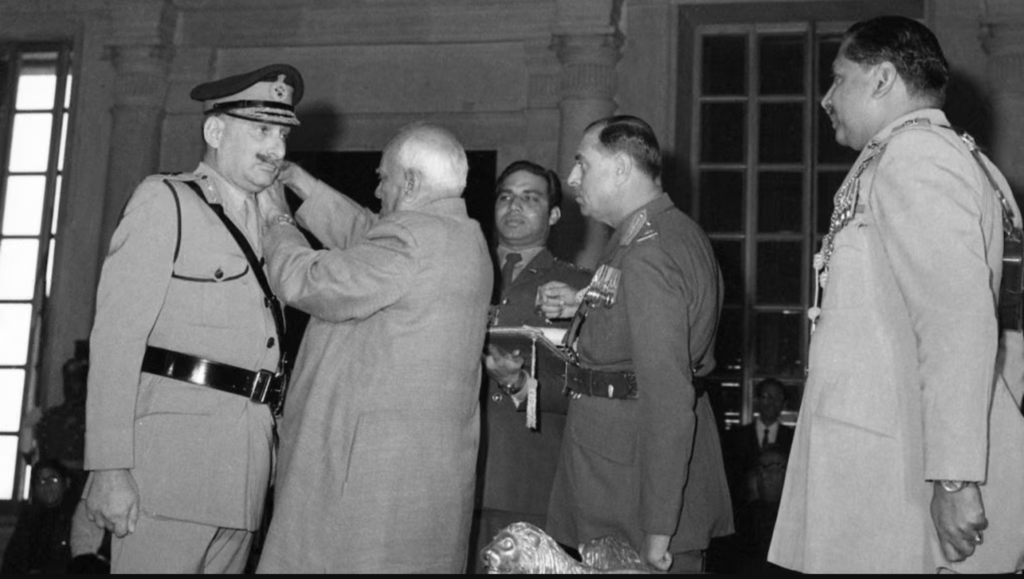
In 1973, Manekshaw retired from the Indian Army after 39 years of service. He was honoured with the rank of field marshal, the highest rank in the Indian Army, and only the second person to receive it after K.M. Cariappa. He was also awarded the Padma Bhushan, the third-highest civilian honour in India. He settled in Coonoor, Tamil Nadu, where he lived a peaceful and dignified life. He was involved in various social and charitable causes, and also served as the chairman of several public and private companies. He was also a sought-after speaker and a mentor to many young officers. He died on 27 June 2008 at the age of 94, after a prolonged illness. He was given a state funeral with full military honours, and his ashes were scattered in the Parsi Tower of Silence in Ooty.
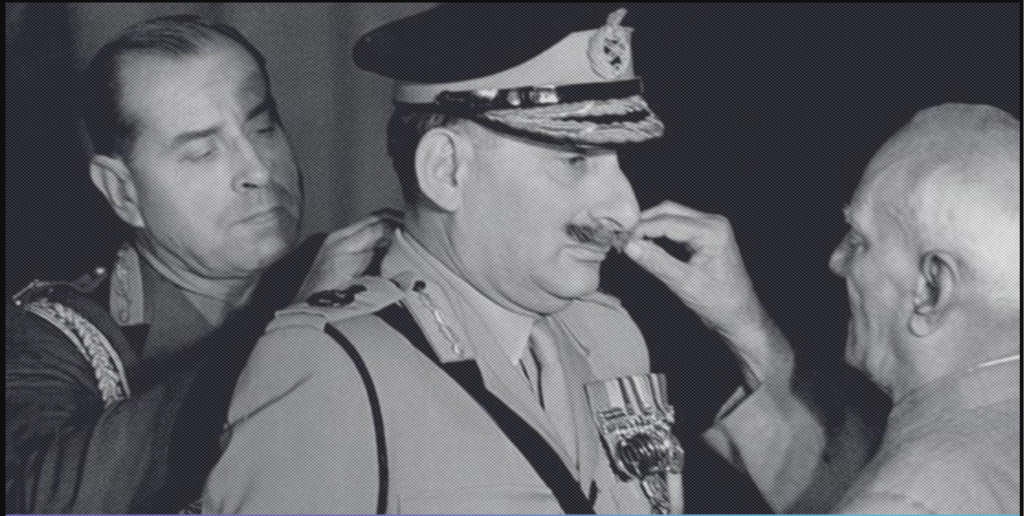
Sam Manekshaw
Sam Manekshaw was a legend in his own lifetime, and a source of inspiration and pride for generations of Indians. He was a soldier’s soldier, a leader’s leader, and a patriot’s patriot. He was a man of honour, integrity, and courage, who dedicated his life to the service of his country and his people. He was a man of wisdom, vision, and humour, who enriched the lives of those who knew him and those who admired him. He was, in short, Sam Bahadur, the brave and the great.
Also read : Henry Kissinger: War-Mongering Diplomat Or Nobel Peace Prize Winner?







